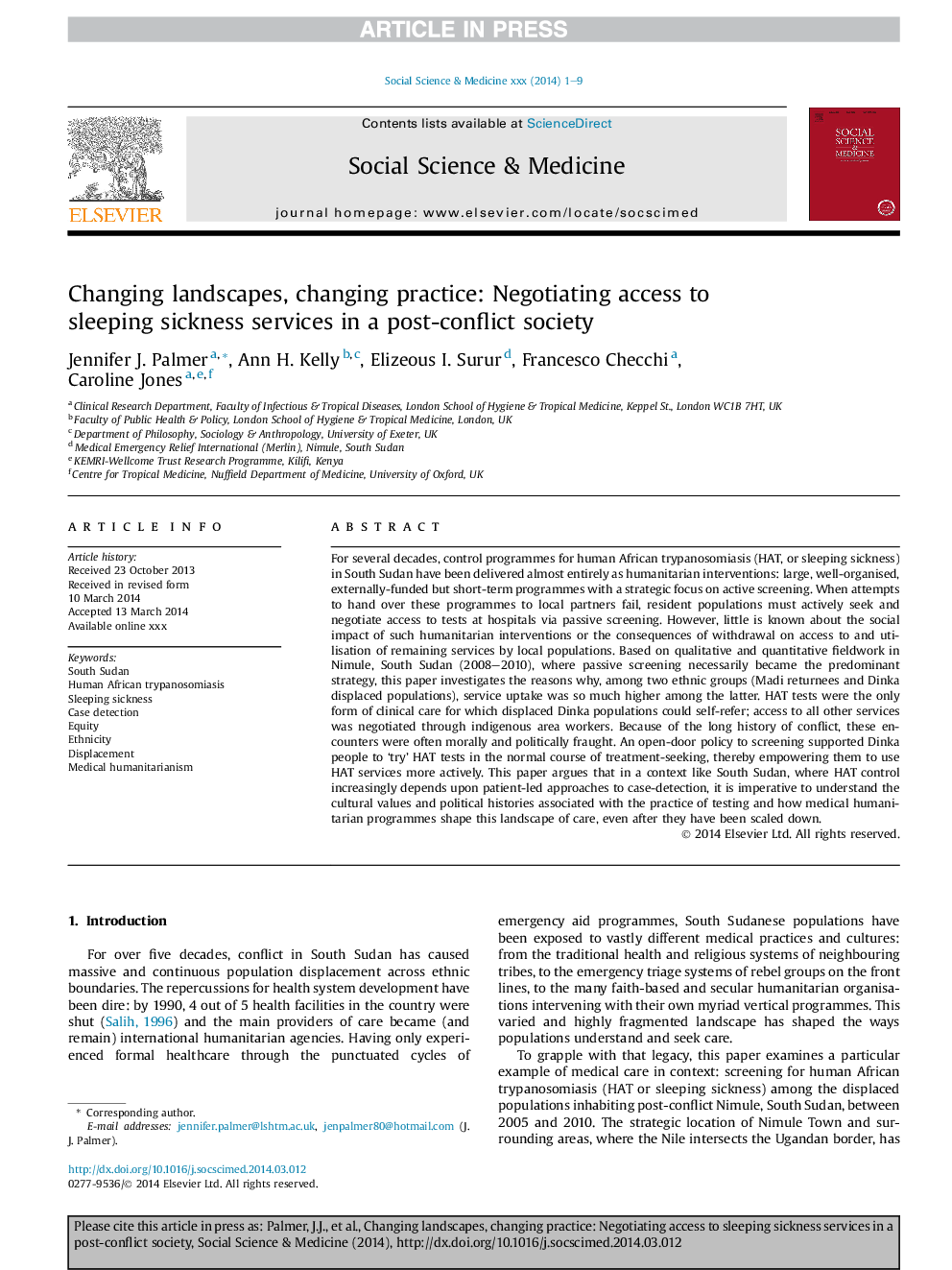| کد مقاله | کد نشریه | سال انتشار | مقاله انگلیسی | نسخه تمام متن |
|---|---|---|---|---|
| 7334259 | 1476048 | 2014 | 9 صفحه PDF | دانلود رایگان |
عنوان انگلیسی مقاله ISI
Changing landscapes, changing practice: Negotiating access to sleeping sickness services in a post-conflict society
ترجمه فارسی عنوان
تغییر چشم انداز، تغییر شیوه: مذاکره برای دسترسی به خواب خدمات بیمارستانی در یک جامعه پس از جنگ
دانلود مقاله + سفارش ترجمه
دانلود مقاله ISI انگلیسی
رایگان برای ایرانیان
کلمات کلیدی
سودان جنوبی، تریپانوسومیوز انسان آفریقایی، بیماری خواب تشخیص موارد، انصاف، قومیت، جابه جایی، بشردوستانه پزشکی،
موضوعات مرتبط
علوم پزشکی و سلامت
پزشکی و دندانپزشکی
سیاست های بهداشت و سلامت عمومی
چکیده انگلیسی
For several decades, control programmes for human African trypanosomiasis (HAT, or sleeping sickness) in South Sudan have been delivered almost entirely as humanitarian interventions: large, well-organised, externally-funded but short-term programmes with a strategic focus on active screening. When attempts to hand over these programmes to local partners fail, resident populations must actively seek and negotiate access to tests at hospitals via passive screening. However, little is known about the social impact of such humanitarian interventions or the consequences of withdrawal on access to and utilisation of remaining services by local populations. Based on qualitative and quantitative fieldwork in Nimule, South Sudan (2008-2010), where passive screening necessarily became the predominant strategy, this paper investigates the reasons why, among two ethnic groups (Madi returnees and Dinka displaced populations), service uptake was so much higher among the latter. HAT tests were the only form of clinical care for which displaced Dinka populations could self-refer; access to all other services was negotiated through indigenous area workers. Because of the long history of conflict, these encounters were often morally and politically fraught. An open-door policy to screening supported Dinka people to 'try' HAT tests in the normal course of treatment-seeking, thereby empowering them to use HAT services more actively. This paper argues that in a context like South Sudan, where HAT control increasingly depends upon patient-led approaches to case-detection, it is imperative to understand the cultural values and political histories associated with the practice of testing and how medical humanitarian programmes shape this landscape of care, even after they have been scaled down.
ناشر
Database: Elsevier - ScienceDirect (ساینس دایرکت)
Journal: Social Science & Medicine - Volume 120, November 2014, Pages 396-404
Journal: Social Science & Medicine - Volume 120, November 2014, Pages 396-404
نویسندگان
Jennifer J. Palmer, Ann H. Kelly, Elizeous I. Surur, Francesco Checchi, Caroline Jones,
